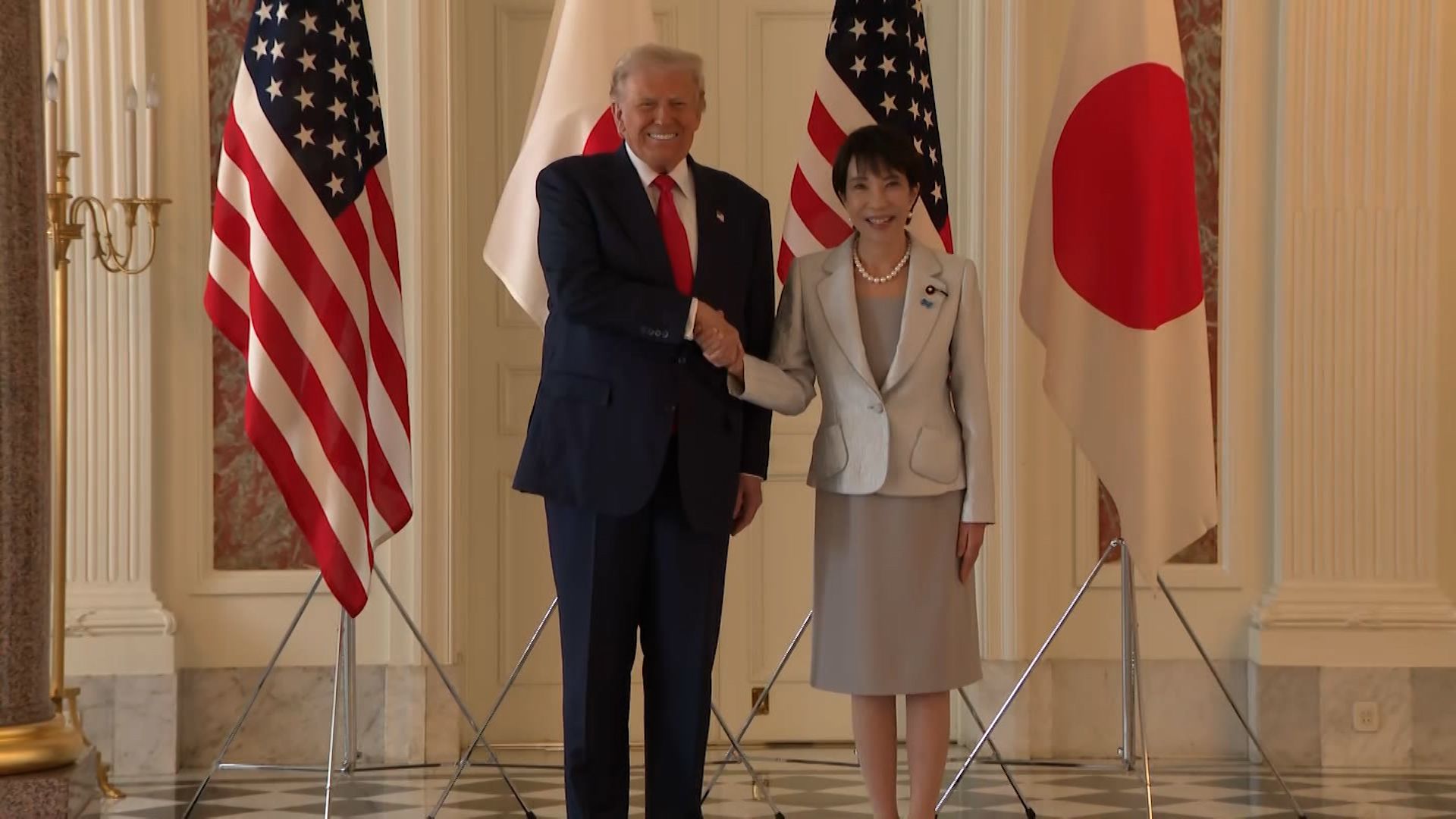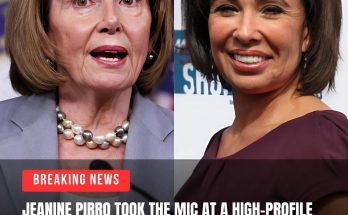
When Donald Trump stepped off the plane in Tokyo, the November air carried both ceremony and symbolism. The red carpet unfurled. The band struck up a bold, brassy rendition of “Hail to the Chief.” Cameras clicked like fireworks. And at the end of the reception line stood Japan’s new Prime Minister,
Sanae Takayichi—waiting not as an equal, but almost as a courtier.
As the two leaders clasped hands, something in the air shifted. It was not just diplomacy—it was deference.
A Royal Reception
From the very start, Takayichi’s conduct seemed choreographed to honor not just a visiting statesman, but a man of near-imperial stature. She bowed low—deep enough that the press photographers gasped. She followed Trump closely, adjusting her pace to his stride. When he paused, she paused. When he gestured, aides moved instantly.
At the state luncheon, Takayichi personally guided Trump to his seat, a gesture that startled even senior diplomats. The table settings gleamed with precision—gold-rimmed porcelain, embossed menus, and small U.S.–Japan flags standing perfectly aligned at each setting.
Trump, grinning, soaked it in. “Beautiful country. Tremendous respect. Tremendous people,” he said, his voice booming across the hall. “You don’t see this back home anymore.”
It wasn’t just a visit—it felt like
coronation energy, and Trump knew it.
The Return of the ‘King’

In Tokyo, Trump walked through palace courtyards like a monarch inspecting his realm. Streets were lined with orderly spectators, waving miniature U.S. flags. The Japanese press noted that he was treated with an “extraordinary ceremonial warmth” not seen since Ronald Reagan’s 1983 visit.
Some called it strategy. Others called it symbolism.
But to Trump, it was validation—proof that abroad, respect could still be commanded, not begged for.
Behind the polished smiles, Japan’s gesture was pragmatic: reaffirming ties with a man who, win or lose in America, still casts a long shadow across the Pacific. Yet to Trump, it felt personal. It was, perhaps, the first time in years he had felt
revered.
Meanwhile, in America…
Across the ocean, a different story unfolded.
In Chicago, protesters flooded the streets under a banner that read “No Kings in America.” It began as a local demonstration but grew into a national movement within days. Teachers, veterans, small business owners—all chanting the same words:
“Democracy doesn’t bow.”
Governor J.B. Pritzker publicly condemned what he called “the dangerous myth of political royalty,” warning that “America is not a stage for vanity; it’s a covenant of responsibility.”
The movement spread—Seattle, Boston, Dallas. In a week, it became known as the “Anti-Trump King Movement.” Thousands carried placards bearing the crown-shaped silhouette of Trump’s hair, crossed out in red paint.
Cable news split along predictable lines. Supporters accused the media of disrespecting America’s former president; critics saw the protests as a reckoning, a call to reaffirm democracy’s first principle: no man is above the people.
A Tale of Two Nations
As the Tokyo trip drew to a close, Trump stood on the steps of the Imperial Palace, gazing at the sea of cameras and officials bowing before him. For a moment, the former president looked almost serene—a ruler at peace with his throne abroad, even if exiled at home.
But beneath the surface, something darker stirred. Reports from aides suggested he watched the American protests with growing fury. “They’ve forgotten respect,” he allegedly muttered during a private dinner in Osaka. “Maybe they need to see it done right elsewhere.”
In Japan, he was honored.
In America, he was challenged.
The contrast couldn’t have been sharper—or more symbolic.
The Man Between Two Worlds
To his supporters, Trump’s reception in Japan was vindication—a reminder that the world still bows to American strength when it wears confidence and charisma. To his critics, it was proof of the delusion they fear most: that he sees leadership not as service, but as
sovereignty.
Somewhere between the bowed heads in Tokyo and the raised fists in Chicago lies the story of a nation—and a man—still at war with its reflection.
One finds respect abroad; the other, resistance at home.
And perhaps, in the mirror of two worlds, Donald Trump saw the same truth that history always reveals:
Respect borrowed is not respect earned.


